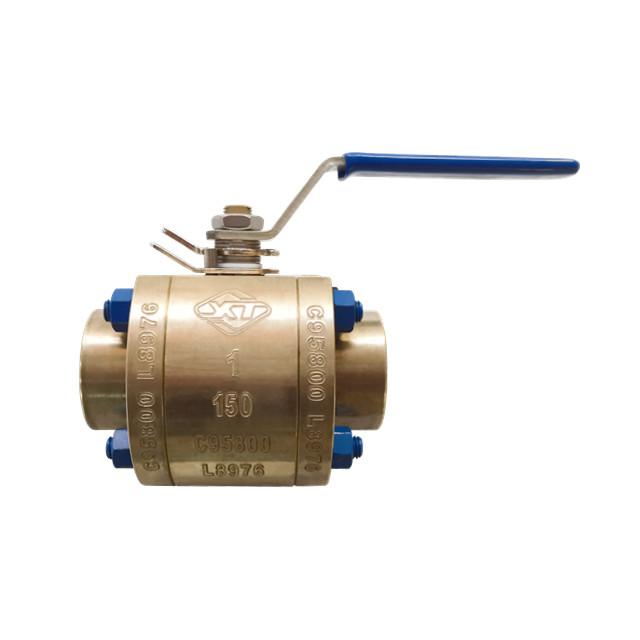Tel : +86-18059296519
Whatsapp : +8618059296519
Email : [email protected]
Ball valves are made of different materials, including brass, bronze, stainless steel, etc. Out of all types of ball valves, the bronze ball valve is mostly used for commercial applications.
It is a ball valve with a full threaded end, which means that the end will not fit through a standard pipe. A bronze ball valve is the most common type. It is often used in industrial applications because of its durability and low maintenance cost.
These valves can be used in a wide variety of piping systems. Their versatility makes them useful in applications requiring quick flow control. They are used in systems for saltwater, sanitation, trim and drain, air, hydraulics, and oil transfer.
They are also considered standard valves for natural gas systems. You can find bronze ball valves in a variety of sizes and materials. Some of them are available with a PTFE seat, while others feature a bronze body and chrome-plated brass balls.
If you want to know more about bronze ball valves, continue reading this article.
A bronze ball valve is a type of ball valve made from bronze metal. It is a popular type of valve used in industrial applications. Its threaded end allows it to be accessed through a full port. This type of valve is used in a variety of applications, including hydraulics, pneumatics, and fire protection.
These bronze ball valves are manufactured with stainless steel valve assemblies to resist galvanic corrosion. While common brass ball valves are available at most home improvement centers, solid bronze ones are more durable and can withstand galvanic corrosion. Additionally, these valves feature NPT threads to fit most Thru-Hull Intake and Street Elbow fittings. This means that they’re an excellent choice for a variety of industrial and commercial applications.
A bronze ball valve is widely used in light industrial and commercial applications. Its typical services include low-pressure steam, compressed air, and hot and cold water. Bronze ball valves are easy to install and use, requiring just a quarter turn to open or close. Its durability and dependability make it a smart choice for any industrial or commercial application.
There are many benefits of using Bronze ball valves in your process. Not only are they durable, but they can also be used in high-performance use cases. In fact, there are three main types of bronze valves: ball, globe, and check.
Among other benefits, bronzes are corrosion resistant. This material can handle high temperatures, high pressure, and a range of other conditions. It is also highly malleable and ductile, making it a good material for valves. In addition, copper has an exceptional antimicrobial property that makes it ideal for chemical and water systems. The Greeks even believed that copper could purify drinking water. Lastly, bronze is easy to shape, cast, and machine, making it an excellent choice for industrial applications.
If you’re interested in purchasing a bronze ball valve for your potable water system, be sure to look for one that is NSF-61 certified or ANSI-NSF-372-certified. These certifications indicate that the valve meets minimum requirements for lead in drinking water.
Bronze valves are also cheaper than brass ones. Aside from being cheap and durable, bronze is also known to resist corrosion. The alloy contains zinc, which increases the strength of the material while decreasing its elasticity. This alloy is also resistant to acid and alkaline foods. And because it doesn’t corrode, it’s a great choice for low-temperature systems.
